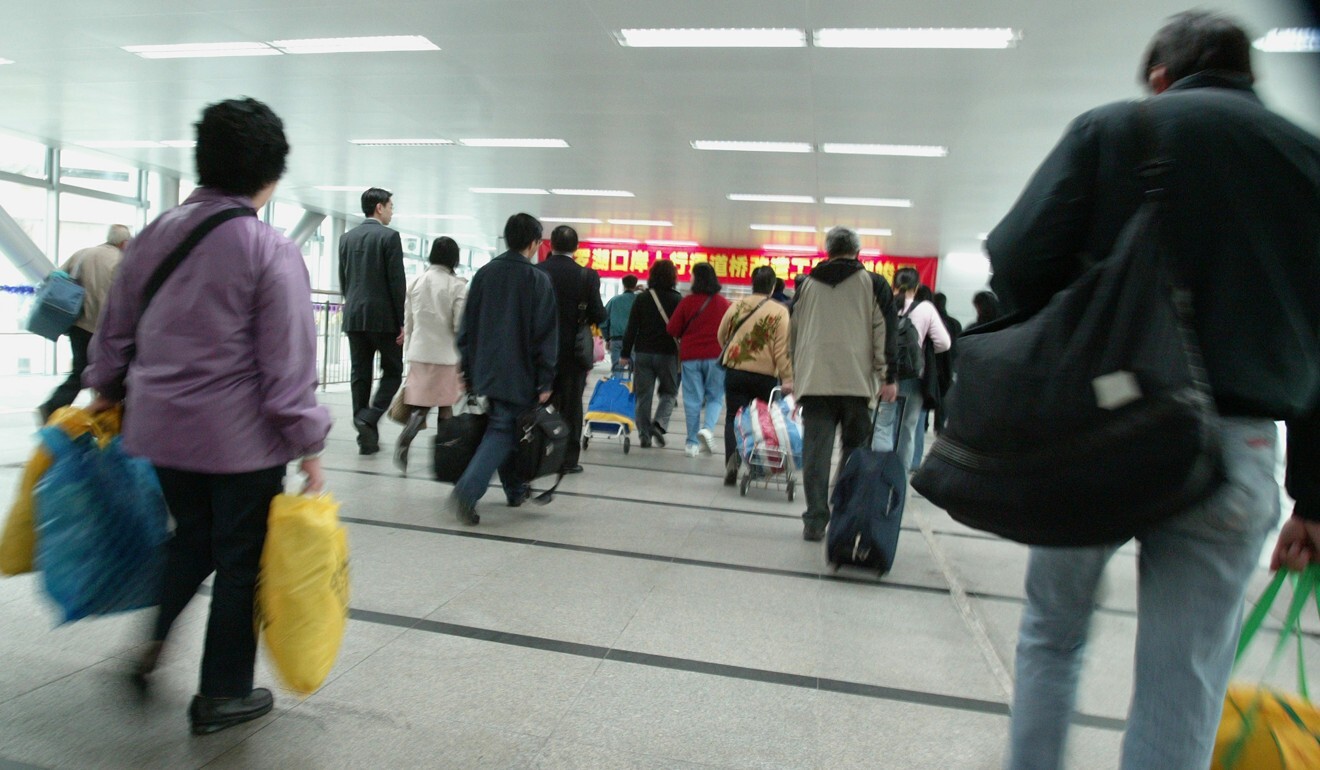
More space, lower living costs lure Hong Kong elderly to retire in mainland China, but health care brings them back
- Not enough government help schemes for those who opt to retire across the border, experts say
- Rising demand for mainland subsidised care homes which have shorter waiting times, bigger rooms

Separated from her husband and estranged from their seven daughters in Hong Kong, retired cleaner Chan Yim-chun moved by herself to the mainland Chinese city of Zhongshan in 2000.
She bought a 600 sq ft flat in a rural area of the city in Guangdong province and had friends and relatives for company. Her monthly welfare allowances of about HK$3,700 (US$475) from the Hong Kong government covered her daily expenses.
“It is hard to survive in Hong Kong, but things are different on the mainland, where I had a big home and felt happy and carefree,” says Chan, now 78.

But after two decades, she is back in Hong Kong and sharing a tiny two-room flat in Sham Shui Po. Her room costs HK$3,500 a month, almost all of her monthly welfare allowances.
She returned last year because she needed long-term medical care for chronic conditions including high blood pressure.
She was not covered by the mainland’s public medical care and Covid-19 pandemic travel restrictions put a stop to her three-monthly trips for hospital visits in Hong Kong.
“I enjoyed living on the mainland, but I had no option but to return,” she says, adding that she will remain in Hong Kong even after the border reopens, as her age and health make it hard to keep travelling back and forth.
Many elderly Hongkongers have chosen to retire on the mainland but some, like Chan, end up returning for medical treatment. Those who become frail also face a lack of caregiving services across the border.
There are no available figures on the number of Hongkongers living on the mainland, but latest official statistics show that 557,900 usually lived in Guangdong at the end of 2020, up 4 per cent from 538,000 in 2019, and 6 per cent from 528,000 in 2018.
There were 91,800 people aged 65 and above among last year’s total, accounting for 16 per cent.
The Hong Kong government has a number of schemes for the elderly who go, including allowing them to continue receiving welfare allowances from the city, and providing subsidised care home places for them on the mainland.
But experts say more needs to be done for Hongkongers keen to move, and those already there.
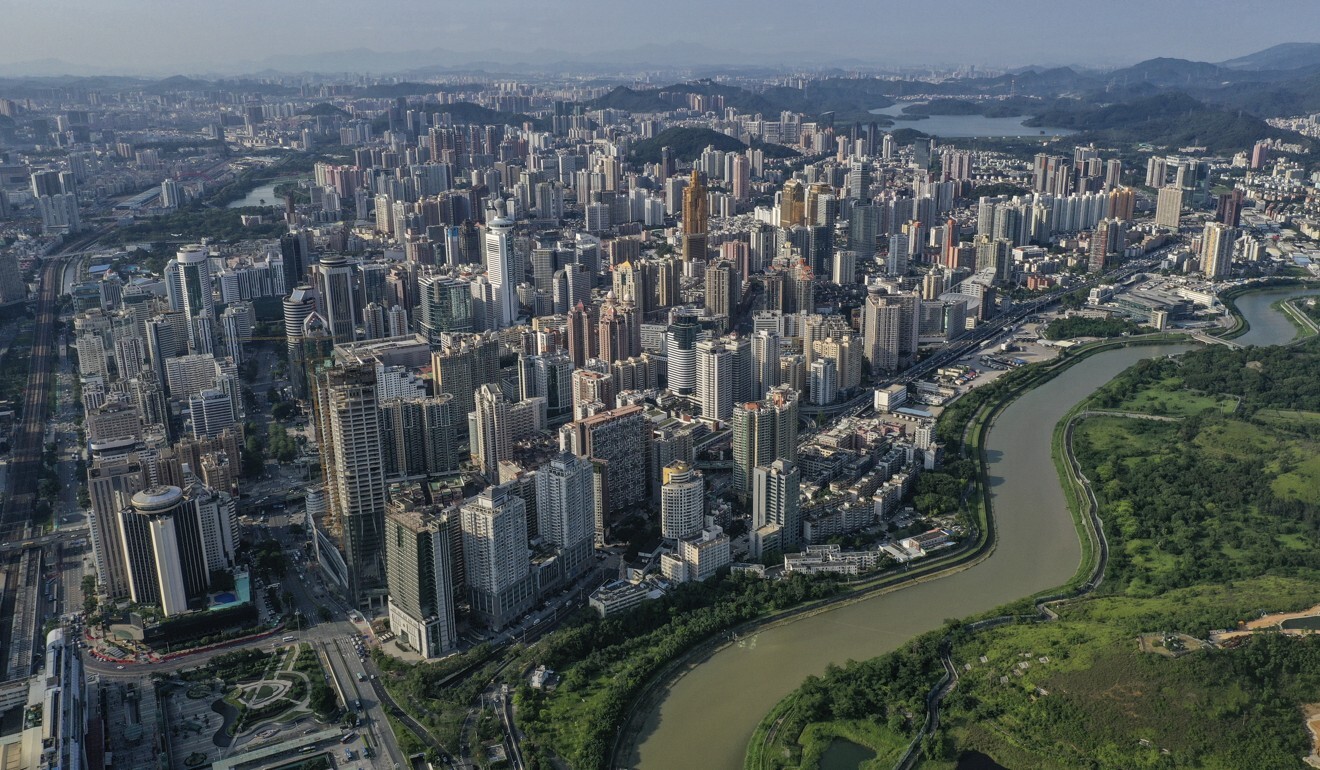
Bigger homes, lower living costs
A government report released in June last year estimated that about 220,300 Hongkongers were interested to live or retire in the mainland cities within the Greater Bay Area, which links Hong Kong, Macau and nine Guangdong cities.
The main attractions were the bigger and cheaper homes, lower cost of living, better community amenities and environment on the mainland.
More than one in five intended to stay in Shenzhen, followed by Guangzhou, Zhongshan and Zhuhai.
Associate professor Bai Xue, director of the Institute of Active Ageing at Polytechnic University, says most of the elderly Hongkongers retiring over the border are either originally from the mainland where they have family, have bought flats there, or prefer mainland care homes that cost less and offer more spacious rooms.
Many choose Guangdong and Fujian provinces because they are from there, or for proximity to Hong Kong.
Despite the advantages, Bai says these people also face difficulties. They are separated from their children in Hong Kong, and this was made worse by the pandemic travel restrictions.
Ivan Lin Wai-kiu, a community organiser of the Society for Community Organisation, says many elderly have chronic medical conditions and being unable to access mainland public medical health care services is a problem.
Many elders also complain about the lack of caregiving and home care services such as meal deliveries for those having difficulty moving around.
“Some end up being forced to return to Hong Kong,” he says.
Widower Lee, now 79, moved back to his hometown Jiangmen, in Guangdong, to live with his son in 2010 after retiring from his job as a porter.
He came to Hong Kong alone in 1976 to work, while his late wife took care of their son and daughter on the mainland.
For about four years before he returned to Jiangmen, he lived in a 20 sq ft bed space in a flat shared with more than 20 others.
“Hong Kong’s poor living conditions and my old age forced me to move to the mainland. If not, I was afraid that no one would even know if I was dead,” says Lee, asking to be identified by only his surname.
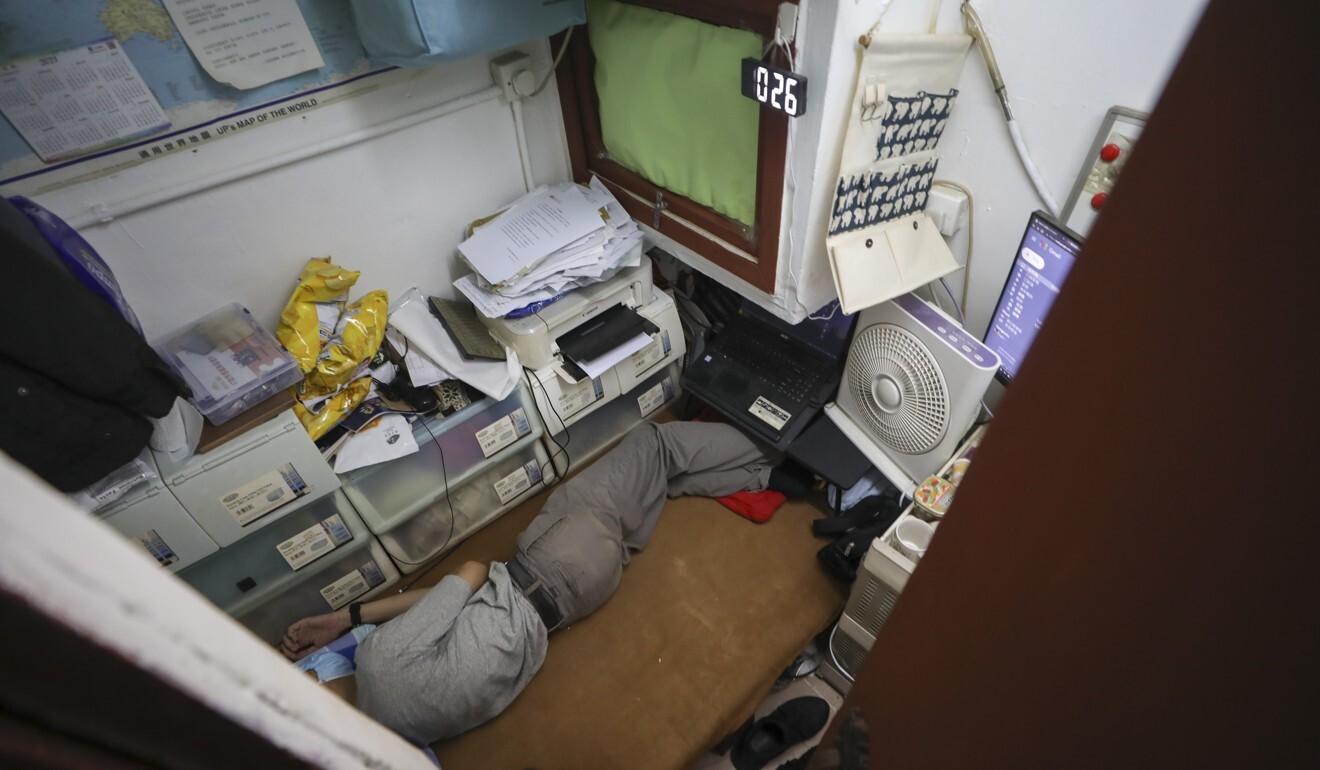
He has high blood pressure, which meant travelling back to Hong Kong five times a year before the pandemic.
To help people like him during the pandemic, the Hong Kong government arranged for the University of Hong Kong-Shenzhen Hospital to provide subsidised follow-up consultations for Hongkongers with chronic conditions living in Guangdong since November last year.
As of October 10, the hospital recorded about 26,000 such attendances.
Lee, however, chose to return to Hong Kong. While living with his son, he met and married a mainlander, a woman in her 50s.
He brought his wife over to live in Hong Kong in April this year, after receiving a 200 sq ft public rental housing unit.
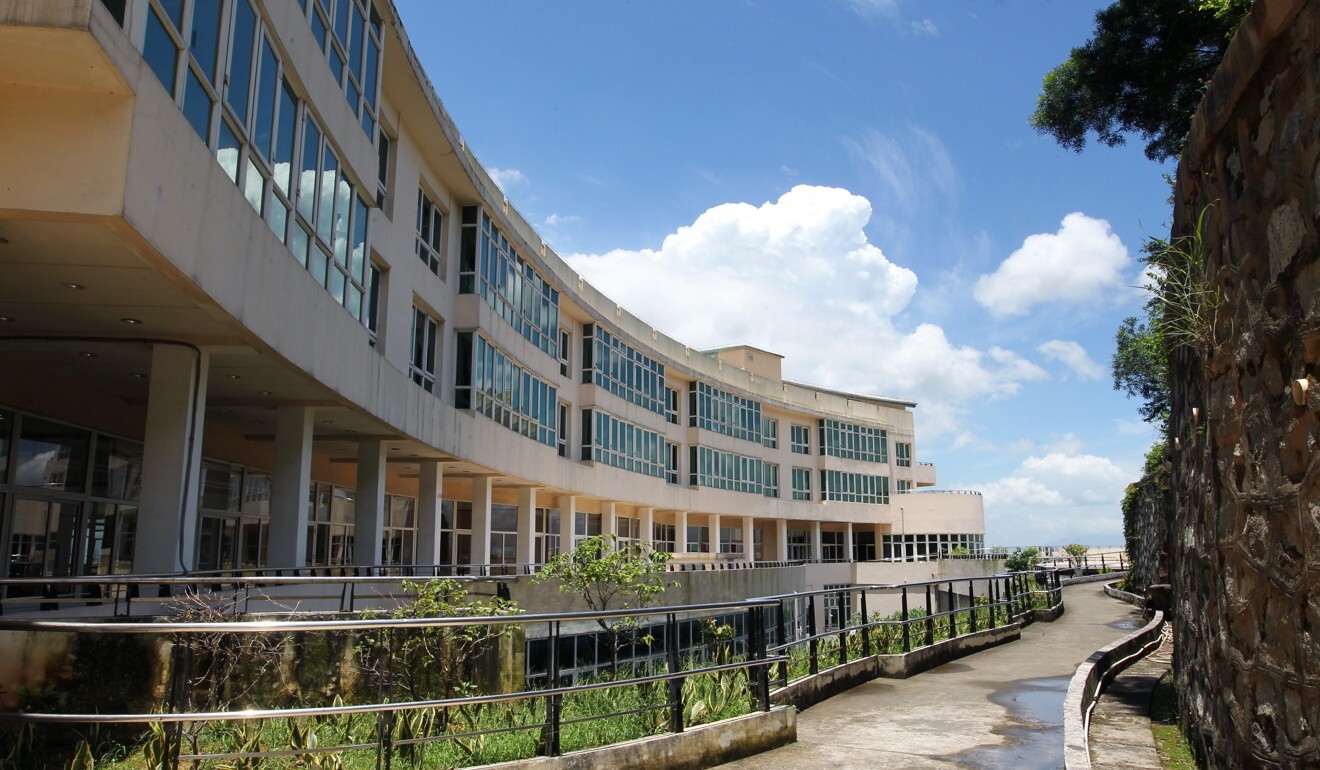
Subsidised care homes an option too
The severe shortage of government subsidised care home places in Hong Kong has taken some elderly Hongkongers across the border too.
Two residential care homes operated by Hong Kong non-governmental organisations in Guangdong have been offering subsidised care to elderly Hongkongers under the government’s Residential Care Services Scheme in Guangdong launched in 2014.
Social Welfare Department statistics show that as of September, 245 elderly people stayed at the Hong Kong Jockey Club Shenzhen Society for Rehabilitation Yee Hong Heights under the scheme, and 34 went to the Hong Kong Jockey Club Helping Hand Zhaoqing Home for the Elderly.
Hongkonger Li, 79, moved to the Yee Hong Heights home in October 2019.
Divorced more than 10 years ago and with two married daughters, the former property management employee lived alone until his health began to deteriorate and he sought help in 2018.
He chose the care home in Shenzhen’s Yantian district. He shares a 450 sq ft room with two other residents also from Hong Kong, and the home has social workers, doctors and nurses on call.
It is about 13 minutes’ drive to the Sha Tau Kok border control point, making it easier for him to make trips back to Hong Kong to go to hospital or see his daughters and four grandchildren.
“I was burdened with making a living for my family in Hong Kong, but now I’m enjoying my retirement,” says Li, who asked to be identified by his surname.
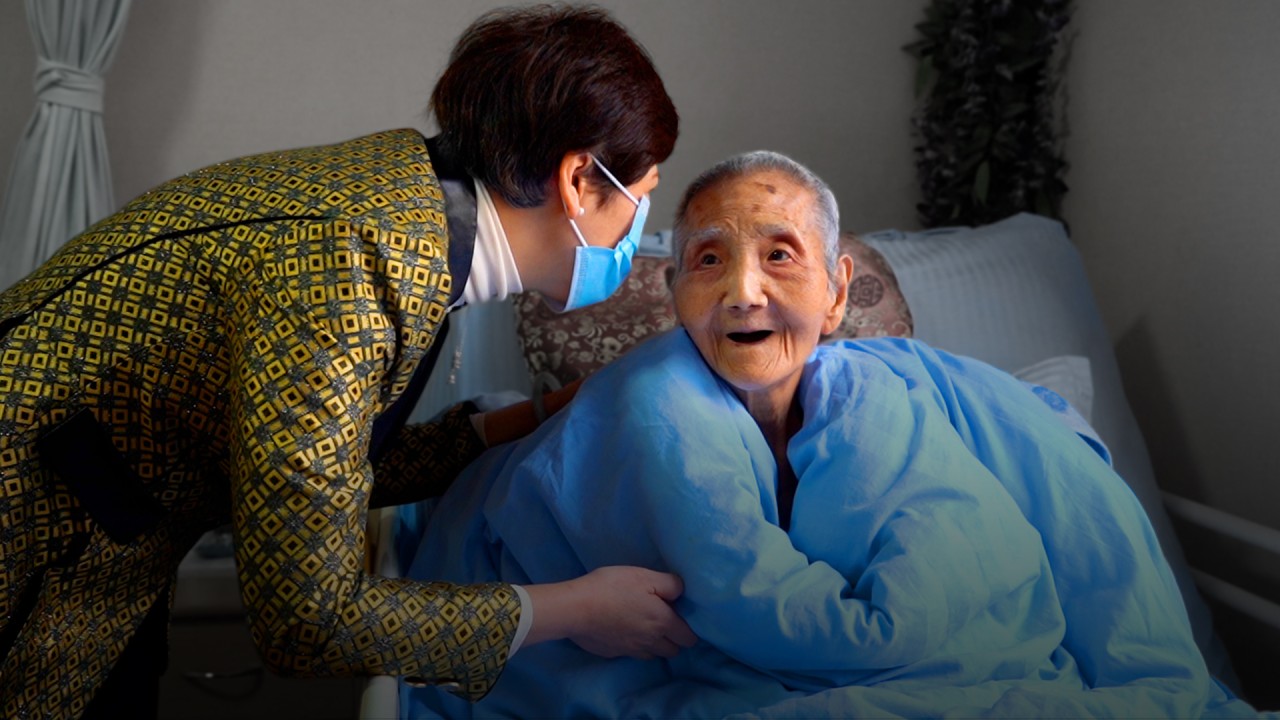
13:30
Chinese woman couldn't find suitable nursing home for elderly parents, so she opened one
He says his only worries are how long he will be fit enough to continue making cross-border trips for his medical check-ups for his various health conditions, and what will happen if he is felled by a more serious disease or an accident on the mainland.
Mandy Lau Shuk-yin, senior manager of the international and China division of the Hong Kong Society for Rehabilitation, which operates the Yee Hong Heights home, says demand from elderly Hongkongers picked up since the government launched the subsidy scheme in 2014, covering meals and accommodation charges as well as the cost of four cross-border trips a year.
The care home has received a total of 450 residents from Hong Kong, both subsidised and non-subsidised, since it was set up in 2006. Before the pandemic, it was almost at full capacity with 321 residents, and three in five were Hongkongers.
Lau says the waiting time is just a month or two, compared with more than three years on average for a subsidised place in a Hong Kong care home.
The average living space is about 550 sq ft per person, compared with only 70 sq ft at Hong Kong care homes.
Because of pandemic travel restrictions, four residents returned to Hong Kong, and there are about 60 waiting to move in, she says.
“There are also some younger people inquiring about a place for themselves in future,” she says.
She says the care home is planning to add another building, providing 200 places to meet rising demand.
But she adds that it also faces difficulties, including the lack of available medical care services nearby for its Hongkonger residents, and a shortage of young elderly care professionals from the mainland.
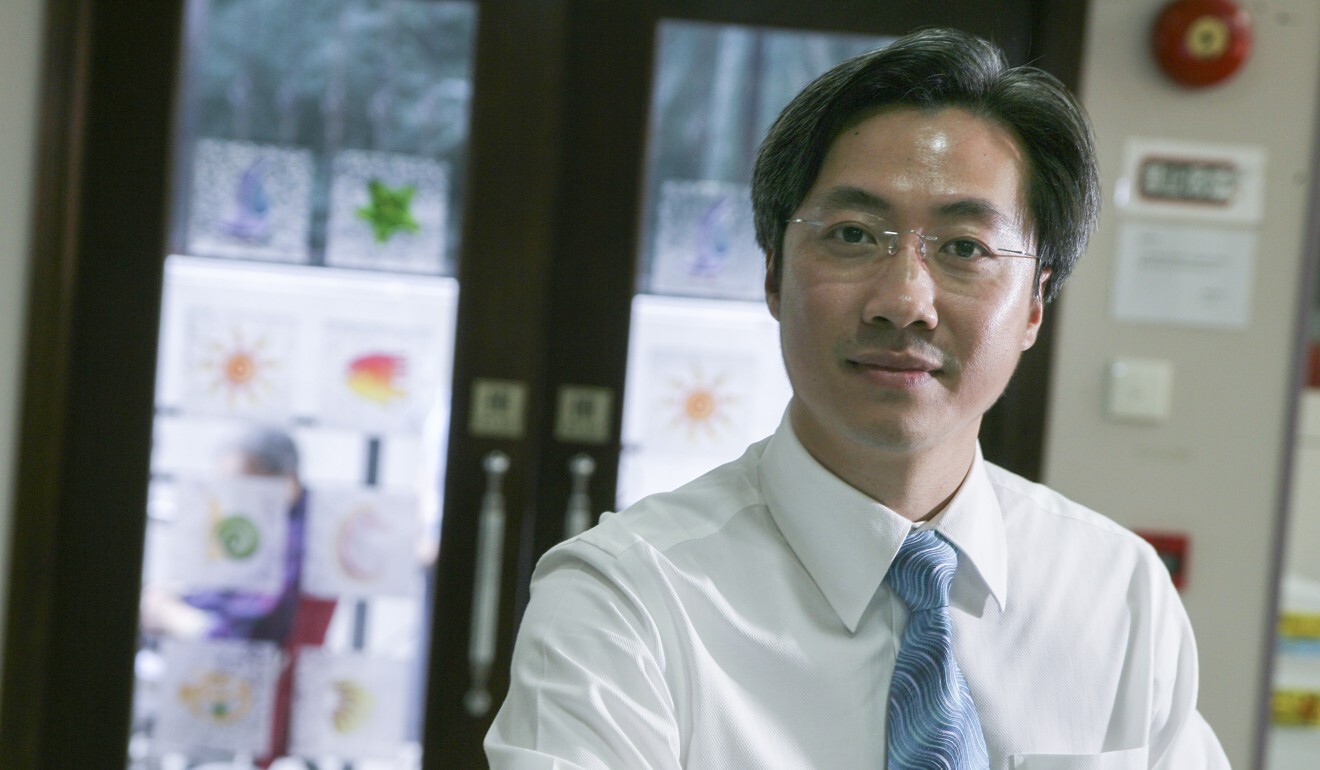
‘Most elderly worry about health care’
Hong Kong Chief Executive Carrie Lam Cheng Yuet-ngor said in her policy address last month that the government would explore extending the Residential Care Services Scheme in Guangdong to more care homes in bay area cities.
She said the authorities would consider relaxing the requirement of one-year continuous residence in Hong Kong for elders who wished to receive their welfare allowances while living across the border.
As of September, the Guangdong scheme benefited a total of 19,334 people, and the Fujian scheme, 1,966. Nearly 900 people benefited from the Portable Comprehensive Social Security Assistance Scheme enabling them to continue receiving welfare payouts while retired in both provinces.
Kenneth Chan Chi-yuk, chairman of the Elderly Services Association of Hong Kong, says the government’s support offers more retirement options and eases the burden on the city’s overwhelmed medical system.
He believes Hong Kong can do more to train mainlanders in providing care.
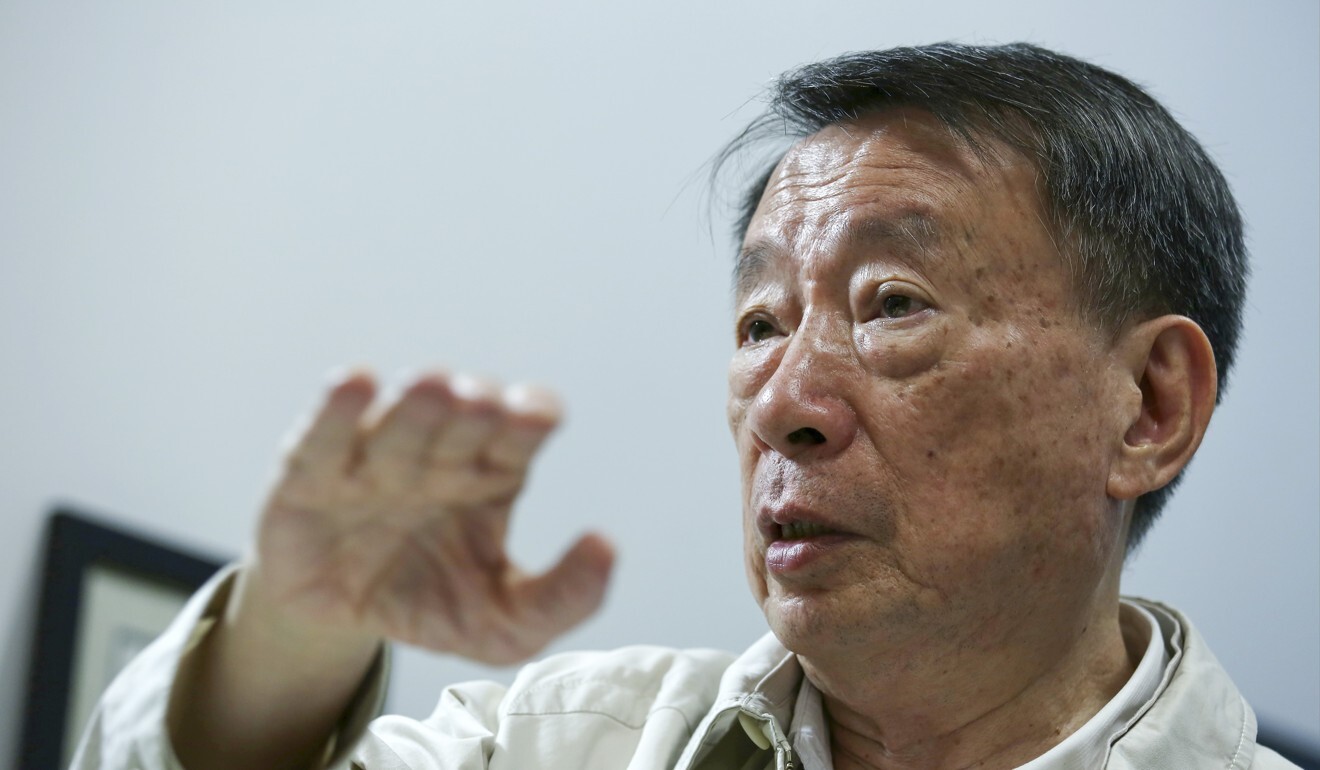
“Elderly care services will be an essential livelihood issue in the future, and Hong Kong leads in this area,” he says. “We should do more to enable Hong Kong to play a bigger role in elderly care of the bay area.”
Professor Nelson Chow Wing-sun, a former social work professor of the University of Hong Kong who has advised the government on retirement issues, says the existing help schemes are not attractive enough to encourage older Hongkongers to retire on the mainland.
“Health care is what elders are most worried about,” he says, adding that many are put off by the absence of available medical care on the mainland.
Since 2015, the Hong Kong government has allowed eligible Hong Kong elders to use health care vouchers, capped at HK$2,000 a year, to pay for outpatient services at the University of Hong Kong-Shenzhen Hospital.
Chow says the authorities should explore relaxing the restrictions to allow more Hong Kong medical care services on the mainland to serve Hongkongers, and enable them to enjoy public medical services in mainland hospitals, especially for chronic health conditions.
He also suggests that Hong Kong and Shenzhen authorities set up a “retirement village” near the University of Hong Kong-Shenzhen Hospital, for elderly Hongkongers to have a community with accessible medical care.
“It is not easy for elders to uproot their families and move to a new place unless enough support is provided,” he says.